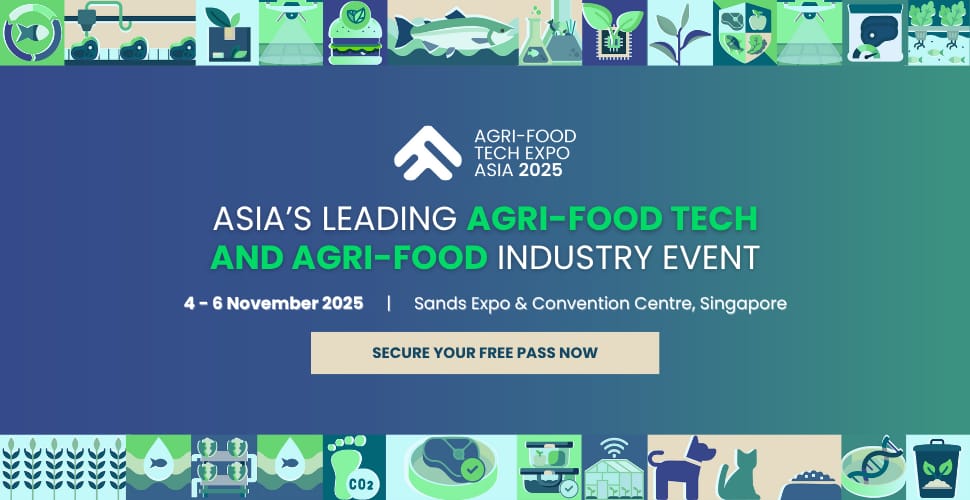- Green Queen Future Food Weekly
- Posts
- China won the EV Race. Will it win food tech too?
China won the EV Race. Will it win food tech too?
Plus: More alt protein companies bite the dust, and Barry Callebaut backs cell-cultivated cocoa. This and more in Green Queen Media's global roundup on future food news.
THIS EDITION IS POWERED BY

Morning folks,
Some housekeeping: It’s the middle of summer and we’re taking our annual break so there will be no newsletter next week. We will be back in your inbox in August. Happy holidays!
Another packed issue, here’s what’s on my mind this week:
China cultivated meat patents: The rest of the world underestimates China at its peril. The EV race, which China has basically won, is a great example of this. While Western pundits spent years obsessing over Tesla and the company’s mercurial CEO, Chinese EV manufacturers quietly executed on their plan for global dominance. Are there parallels with cultivated meat? In the West, folks are busy arguing about whether it’s natural and enacting legal bans against the technology. Over in China, they are out-patent-filing everyone else when it comes to cultivated meat. As I’ve argued for years, Asia does not suffer from the happy cow myth. Those of us based in this part of the world are hyper aware that we have a land and water problem when it comes to food: there’s simply not enough of it, and we need to find other ways to grow more food, so solutions like cultivated meat do not scare us off. Westerners, with their pastoral identity politics and vast horizons of farmland, have not yet absorbed this reality. It’s too easy to believe that the meat will keep coming.
Why we love to eat meat: And speaking of meat, why do so many of us eat so much of it even as we know it’s not good for the planet and even as we describe ourselves as animal lovers? There are many theories out there, with few truly convincing answers. A new study suggests the answer is in forcing us to face the cognitive dissonance we live with, ie, our values not matching up with our behavior. According to the authors, only when we “can no longer justify this action-intention gap” do we change our behavior. It’s a worthwhile hypothesis. But the problem still remains that we have built a world where living in cognitive dissonance is easy, cheap and convenient. The system needs to change before we can have a mass behavior change.
More US beef, less Amazon beef: The Breakthrough Institute’s latest paper suggests that by exporting more US beef, we can lower global emissions. On the surface, this seems wrong. Everyone knows that we need to eat less beef for the climate. But actually, this aligns with Michael Grunwald’s We Are Eating The Earth book, which argued that we should be eating the most efficiently produced beef out there with the lowest land-use costs (e.g. American or Australian) while reducing reliance on high-emission and deforestation-linked meat from places like Brazil, where the cost of a steak is intrinsically linked to the destruction of the Amazon.
Erratic and inconsistent government food policy: Governments can’t seem to make up their mind about the future of our food systems with policy often at odds with expert recommendations and vice versa. For example, the UK’s new food strategy underlines the need to invest in alternative proteins, while government nutrition advisors are vilifying plant-based dairy drinks. In Germany, the country’s Scientific Advisory Board has also strongly advised the government to invest in alternative proteins, but the EU Commission is back to proposing a ban against meat-like terms for plant-based products. What gives? Slashing food-related emissions should be a no-brainer. We cannot achieve net zero without it. All government food-related policies should be measured against this ultimate, and very necessary, goal. The longer this takes, the bigger the cost to our health, our food systems, and our wallets.
-Sonalie
💡 Only On Green Queen
🇨🇳 Industry Insights: Is China Winning The Cultivated Meat Innovation Race?
A leader in green energy and electric vehicles, China is spearheading the protein transition too, with more cultivated meat patent applicants than any other nation.
🥩 Analysis: Could Trump Deliver ‘Rare Win’ for Meat & the Climate with US Beef Exports?
New analysis from the Breakthrough Institute reveals that increasing US exports of beef can help lower the industry’s emissions across the globe, but protectionist barriers and tariffs must be overcome first.
👩🏻🌾 Deep Dive: How Agriculture Today is Putting Tomorrow’s Food at Risk
Climate change is ravaging crop yields and dairy production, while meat consumption is contaminating freshwater, according to new research.
🥛 Key Insights: Alpro, Oatly React as UK Govt Advisors Call Plant-Based Milk ‘Not Equivalent’ to Dairy
Nutritionists advising the UK government say only fortified plant-based milks are acceptable alternatives to dairy, and call ‘growing up’ drinks for children unnecessary. Here’s how Oatly and Alpro have reacted.
✅ Must-Read Headlines
🌏 The APAC Society for Cellular Agriculture and Cellular Agriculture Australia are teaming up to advance the Asia-Pacific future food industry.
💡Through policy and regulatory exchanges, APAC-SCA and CAA will share timely insights and best practices on evolving regulatory landscapes.
🇬🇧 The UK government launched its new food strategy, which recognises how its R&D and manufacturing prowess can help develop alternative protein products and plug a £14B productivity gap.
💡In an annex to the newly published strategy, the Department for Environment, Food and Rural Affairs noted that eco-friendly food production will bring economic opportunities and underpin long-term affordability.
🇪🇪 Estonian startup Äio secured a €1 million government grant to speed up the development of its yeast-derived sustainable fat alternative, specifically for use in cosmetics.
💡Its ingredients can be used in a range of cosmetics applications, making it an “attractive partner” for beauty companies big and small.
🇪🇺 The EU Commission has reignited the plant-based meat labelling debate by proposing a ban on the use of 29 animal-related terms for vegan packaging labels.
💡The move suggests that Big Meat, which has ties with the EU, sees plant-based products as a threat, and these undertones could be seen in the wording of the Commission’s proposal.
📉 Californian gas fermentation firm NovoNutrients, which makes proteins from gases, is selling its assets a year after raising $18 million in funding.
💡Former CEO David Tze explained: “The technology works. We were proving that in our pilot phase. The challenge was capital intensity in a shifting investment climate.”
🧪New Tech & Collaborations
🇩🇰 Scientists at Technical University of Denmark have found the solution to a key issue holding back precision-fermented casein proteins, paving the way for more realistic animal-free cheese.
💡The scientists are now looking to expand the process to produce cheese and other dairy products using the animal-free casein, supported by a proof-of-concept grant from DTU Skylab, the university’s innovation hub.
🔍 In a partnership with the Almond Board of California, AI nutrient discovery firm Brightseed has uncovered 530 phytochemicals in the nuts, including six seen for the first time.
💡The firm said the study sheds light on future discoveries in almonds and can guide both nutritional research and functional food development.
🇩🇪 German engineering firm GEA has opened its New Food Application and Technology Center in the US with a $20 million investment to scale up alternative protein production.
💡The move aims to bridge the gap between lab innovation and industrial-scale production, with a focus on sustainability and the region’s economic transformation.
🍫 Barry Callebaut, the leading supplier of chocolate to the food industry, has signed a partnership to explore cell culture technology for cocoa alternatives.
💡Barry Callebaut highlighted that cell cultivation can allow it to develop new chocolate products with unique flavour and enhanced health benefits.
🚀 Everything Else In Future Food
🐟 3D printing food tech startup Steakholder Foods debuted two fish-free seafood products in grocery stores in Israel.
🔬 A new report by the International Panel of Experts on Sustainable Food Systems argues that we need to get fossil fuels out of our food system. But here’s why it doesn’t go far enough.
❓Many people say they care about the planet and animals, yet still eat meat. A new study published in the Appetite journal explains why.
🇩🇪 Scientists advising the German government have called for greater support of alternative proteins in a new report, recommending over 50 policy measures.
🌱🍔 Future Food Quick Bites
In our weekly column, Future Food Quick Bites, we round up the latest news and developments in the alternative protein and sustainable food industry. This week, Future Food Quick Bites covers Oatly’s new matcha latte, Revo Foods’s clean-label mince, and Lactalis Canada’s plant-based exit.
📆 Scene & Heard
Register for your Free Pass to Agri-Food Tech Expo Asia 2025
🇸🇬 Agri-Food Tech Expo Asia 2025 (AFTEA) is the premier sourcing and networking platform in Asia for the global agri-food tech and agri-food communities hosting 7,000 attendees and 250 exhibitors, including international and industry-led pavilions and 100 start-ups, Engage with global leaders and industry experts over three days, under one roof, to explore innovative technologies and sustainable practices designed to future-proof our food systems. Register for free.
🍫Do you have a solution to tackling rising costs of cocoa? Have you been working on innovative technologies to produce chocolate? Applications to the Buhler New Chocolate Challenge are now open! Apply here.
🇳🇱 Food Matters Live is set to come to Rotterdam 23rd-24th September 2025, serving an ambitious community of industry professionals across a region renowned for its vibrant innovation in sustainable food and nutrition. Learn more here.
breaking news & analysis for food tech insiders
The world’s leading global food system founders, investors, policymakers and corporate execs read Future Food Weekly, don’t miss out → subscribe now.






